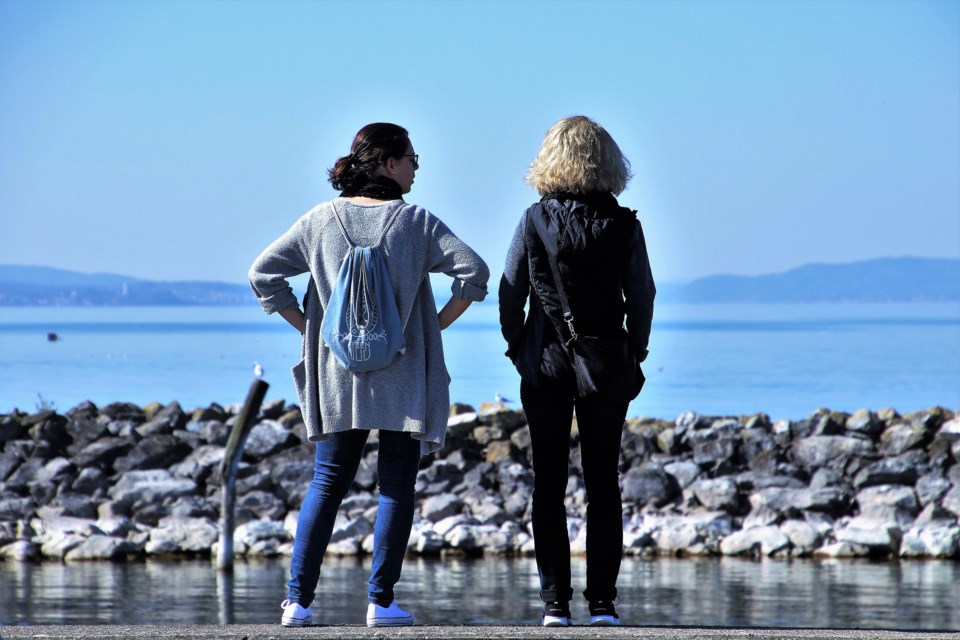B.C. residents rate themselves very highly when it comes to their own social, or physical, distancing efforts, but think others are doing a poor job, according to a new survey.
In an online survey, published Thursday, of 817 British Columbians, 89 per cent ranked themselves an eight, nine or 10-out-of-10 for their physical distancing measures.
Meanwhile, 41 per cent gave themselves a perfect score.
But residents are far more critical of others when it comes to these measures, according to the survey. When it comes to how the province is doing as a whole, only four per cent of respondents gave others a perfect score, and just 35 per cent rate B.C. eight or higher.
The majority of ratings – 47 per cent – fell in the middle of the scale, at six or seven, and 17 per cent of respondents gave B.C. scores of five or lower.
“It’s an interesting phenomenon that individually we think we are doing a good job in social distancing, but we don’t think our neighbour is doing the same,” said Steve Mossop, president of Insights West – which conducted the survey – in a statement.
The survey also found that many in B.C. think that young people are doing a poor job at social distancing: 55 per cent of respondents gave 18 to 35-year-olds a score of 5 or lower.
But those young adults disagreed, and in fact think they are doing better than the province as a whole – 91 per cent rated themselves an eight or higher when it comes to physical distancing.
Mossop said that he believes the poor ratings of others may be due public shaming.
“I believe public instances of shaming offenders – whether it be social media or news-driven – has given us the perception that we are doing worse as a society than what we are actually doing,” he said.
Mossop added that he was, however, surprised at the extent to which British Columbians are leaving their homes – and said he thinks people can do a better job on this front.
Shifts in British Columbians' behaviour
The poll also showed some shifts in British Columbians’ behaviour.
There’s been a sharp increase in people’s consumption of the news and social media use, as well as time spent cooking and talking with family.
Fifty eight per cent of respondents said they are spending less money.
The survey was roughly split on whether people are drinking, ordering take-out or exercising more often.
However, physical distancing has had an impact on intimacy, with 24 per cent of respondents saying they were having less sex.
The survey was conducted between April 9 and April 12, and has a margin of error – which measures sample variability – is plus or minus 3.4 percentage points, 19 times out of 20.



